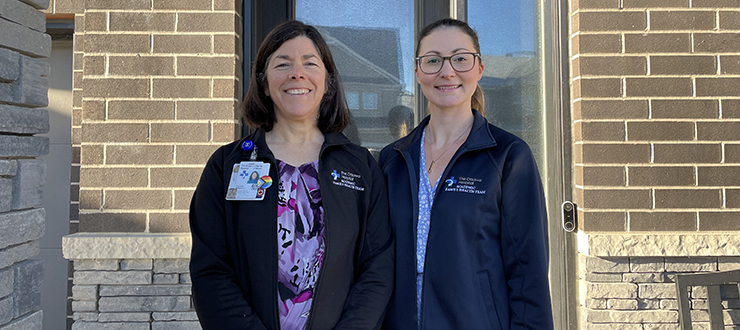Your health, simplified.
Finding information about your health shouldn’t be complicated. Healthy Tomorrows is a collection of health stories, insights and tips from experts at The Ottawa Hospital to help you and your family live healthier lives.
Filter By:

“My story doesn’t have to be your story”: New screening test better at preventing cervical cancer
“I went from being a 32-year-old new mom to a cancer patient with an incurable diagnosis.” Alicia’s journey underscores the critical role of HPV testing in preventing cervical cancer. Discover how the new HPV test can save lives and find out how to book your cervical screening appointment with our “Superscreener.”

Breast cancer screening at The Ottawa Hospital: What to expect from your mammogram appointment
Is it time for your regular mammogram? Meet the team at The Ottawa Hospital’s Hampton Park Plaza breast screening clinic. When you book your screening mammogram with us, you can expect compassionate service and an efficient appointment (most people are in and out in under 20 minutes!).

Ontario lowers age for regular breast cancer screenings: Top 13 frequently asked questions
To help detect and treat breast cancer as early as possible, the province has lowered the minimum age to self-refer for publicly funded screenings — from 50 to 40. Eligible Ontarians between 40 and 49 can make an appointment for a routine screening mammogram without a referral from a primary care provider. Here are the most important things that our breast screening team wants you to know.

Looking to get screened for cancer but don’t have a family doctor? Make an appointment with our “Superscreener”
Regular cancer screening can help save lives. For people living in Eastern Ontario who do not have a primary care provider, the Champlain Screening Outreach Program offers screening services for breast, cervical, colorectal and lung cancer. Find out how to book your appointment with Nurse Practitioner Sarah Junkin-Hepworth, our “Superscreener.”

Type 2 diabetes: Are you at risk?
Type 2 diabetes is a serious health condition that affects nearly two million Canadians (and rising), but there are actions you can take today to reduce your risk. Our experts offer evidence-based tips on how to support your body’s blood sugar balance system and keep yourself healthy.

Getting screened for colon cancer is fast, easy and free
Poop, #2, BM, stool – whatever you call it, it could save your life. The screening test for colon cancer is quick, free, painless, and can be done from home. Get checked today, because nine out of 10 people can be cured if colon cancer is caught early.
Support patient care and research at
The Ottawa Hospital

